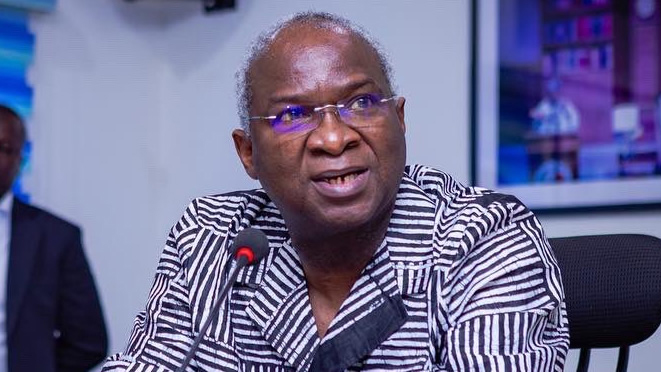
• Health Experts Fear For Nigeria
• Hospitals Struggling With HIV, Lassa Fever, TB, Malaria May Collapse With Additional Burden Of Coronavirus
• First Nigerian Patient Tested Negative Twice, Has Been Released
• Number Of Countries With First Cases Rise As Five New Nations Reported Cases In Past 24 Hours
• Scientists To Announce COVID-19 Vaccine In Few Days.
• Sick Man From US, Tests Negative For COVID -19 In Rivers State
There are strong indications that healthcare systems across the world may cave in and prove incapable of handling and managing the Coronavirus disease, should there continue to be a large influx of patients with severe cases in health facilities.
According to health experts, given the speed at which the virus is spreading across the globe, especially after the World Health Organisation (WHO) declared it a pandemic, Nigeria’s weak health system maybe overwhelmed if the country records a spike in positive cases.
The country’s health system has received knocks both locally and internationally for its poor infrastructure; poor service delivery; inadequate manpower, and lack of equipment, all of which have led to increased medical tourism (with one billion dollar lost yearly) and attendant brain drain in the course of seeking better health systems abroad.
Specifically, some health experts have raised the alarm that most hospitals are not equipped to manage large number of patients should there be a spike in severe cases as recorded in other countries.
According to the World Health Organisation, the spread of Coronavirus, especially the number of index cases in countries is rapidly increasing, as five new nations reported their first cases in 24 hours, making a total of over 120 countries.
And as the Coronavirus pandemic spreads throughout the United States, some health experts are warning that hospitals are ill-prepared to manage the anticipated number of patients, should there be increase in severe cases.
And with the high demand for drugs, which thousands of people are struggling to get, hospitals struggling with Human Immune Virus (HIV), Lassa fever, Tuberculosis (TB) and malaria may collapse with additional burden of the Coronavirus if nothing is done to salvage the situation on time.
Report shows that thousands of people living in Wuhan, China, and other countries are struggling to get the drugs they need, as the situation has made it impossible for them to leave their homes and go to hospitals for medicine without special permission.
According to an estimate presented to the American Hospital Association, by Dr. James Lawler, at the University of Nebraska Medical Centre early this month, about 4.8 million patients will be admitted to hospitals because of Coronavirus, which will include about 1.9 million staying in the intensive care unit over the next two months
On her part, the Director of the Harvard Global Health Institute, Dr. Ashish Jha, told CNN that hospitals may face difficulties during Coronavirus pandemic, pointing out that, “If we have a large spike of cases, American hospitals are not going to be able to handle it.”
It is unclear exactly how many people might need to be hospitalised in the days ahead, but doctors are trying to figure that out as healthcare systems prepare for what could be an escalation.
Also, the global situation shows 155, 209 cases of COVID-19 virus confirmed as at 7:30pm yesterday, with over 7, 500 new cases, while about 5, 811 deaths have been recorded, with over 350 of them being new deaths. So far, 73,731 patients have recovered.
As the death toll soars by the minute across the globe, Europe and United States remain worse hit on a regional basis.
With this massive spread and multiple deaths, many governments are taking precautionary steps. For instance, Seville a Spanish town has suspended its annual Easter procession, just as Abu Dhabi shut down major cultural venues.
On its part, Cambodia closed schools in the two most hit cities, while Apple has directed all its retail stores outside China to be closed.
In Malaysia, 81 cases were linked to a religious centre, with 41 of the cases new. Following this, the Prime Minister Muyiddin Yassin, on Friday directed that all gatherings, including international meetings, sports, social and religious events should be cancelled or postponed until after April.
At precisely noon yesterday also, millions of Italians, from Piedmont to Sicily, leaned out of windows or stood on their balconies to applaud healthcare workers in hospitals and other frontline medical staff, who have been working round the clock to care for coronavirus patients.
Singapore moved swiftly by closing all its 70 mosques from Friday for five days to disinfect them, after the spread of the virus in Malaysia and Brunei was connected to a gathering of 16, 000 people at a mosque near the Malaysian capital, Kuala Lumpur.
Also, thousands of Americans are fleeing Europe and other centres of the coronavirus outbreak, but many of them, including travellers are reporting no health screenings upon departure and few impediments at United States. But the US has recorded 2, 340 cases with 51 deaths and 49 discharged.
As far as the virus is concerned, there appears to be good news as scientists have given hope that vaccine to end the pandemic would be released in a few days.
While scientists at the Israel’s Institute for Biological Research say they are set to announce the completion of the vaccine for COVID-19 in a few days, another the team in London, led by Mucosal Infection and Immunity head, Robin Shattock, said the vaccine for the treatment of coronavirus was almost developed.
According to the Senior researcher, Paul McKay, of Imperial College London, “I’ve got results from a month after I injected (the mice) and the vaccine works really, really well.”
He added that they have applied for research funding from the Medical Research Council, United Kingdom, which would help the team conduct a clinical trial on humans.
“If we get the funding for the human clinical trials, we will put it into people by June,” he said.
“If British scientists here develop a vaccine it would be great if the government supported it,” McKay said.
Israeli scientists at the institute, which is under the supervision of the Prime Minister’s Office, said they have recorded a significant breakthrough in understudying the biological mechanism and threats of COVID-19.
They noted that the vaccine would have a better diagnostic capacity, produce antibodies for infected patients and improve immunity, adding that it requires series of tests and experiments that may take weeks before it would be certified safe for use.
While scientists in London say they had tested the vaccine on mice and they hope it would be ready for trial on humans by June 2020, adding that they are also working with scientists in Paris to know how effective it would be on monkeys.
In the last 72 hours, five new countries/territories/areas have reported cases of COVID-19 according to WHO. These are Jersey, Réunion, Saint Vincent and the
Grenadines, Cuba and Guyana.
The WHO, UN Foundation and partners, Friday, launched a first-of-its-kind COVID-19 Solidarity Response Fund, which is expected to raise money from a wide range of donors to support the work of the WHO and partners to help countries respond to the pandemic.
Also, a team of experts from WHO, Global Outbreak Alert and Response Network partners, the Robert Koch Institute in Germany and the Chinese Centre for Disease Control concluded a technical support mission on COVID-19 to Iran on March 10, 2020. During the team’s mission in Iran, the Ministry of Health and Medical Education (MOHME) launched a national campaign to control COVID-19.
According to latest figures from the Nigeria Centre for Disease Control (NCDC), as at March 13, 2020, no new confirmed case of COVID-19 has been recorded in the country, which has recorded only two confirmed cases.
It noted that apart from the index case, a total of 43 people have been screened for COVID-19 (one new) in seven states (Edo, FCT, Kano, Lagos, Ogun, Rivers, and Yobe) out of which 42 tested negative and have been ruled out, while a contact of the index case was confirmed positive with no death
However, the NCDC noted that the second confirmed case who was a contact of the index case, has tested negative twice, cleared the virus and was discharged to go home and a multi-sectoral national emergency operations centre (EOC), activated at level 3, continues to coordinate national response activities.
A 43-year-old man who returned from the United States to Nigeria and was suspected to have been infected with COVID-19 after exhibiting respiratory symptoms, has tested negative in Port Harcourt.
The Rivers State Commissioner for Health, Prof. Princewill Chike, told journalists, yesterday, that on the March 10, the Rivers State Public Health Emergency Operations Centre was notified of a suspected case of COVID-19.
“A 43-year-old male Nigerian, who had returned from the United States of America on the 22nd of February, 2020 through the Lagos International Airport, and visited Port Harcourt for official duties. He had earlier exhibited mild respiratory symptoms and was placed on treatment for Malaria and Respiratory Tract infection.
“The Rapid Response Team was quick to react, investigate and self-isolate the patient, while nasal, oropharyngeal and sputum samples were collected for analysis and dispatched to the reference laboratory in LUTH…” he said.
The commissioner prior to the release of the suspected COVID-19 patient, said his ministry had informed all medical facilities in the state, that if there is a suspected case of COVID-19, the suspected case should be sent to any of the teaching hospital in the state, either the University of Port Harcourt teaching hospital (UPTH) or the State teaching hospital (RSUTH).






